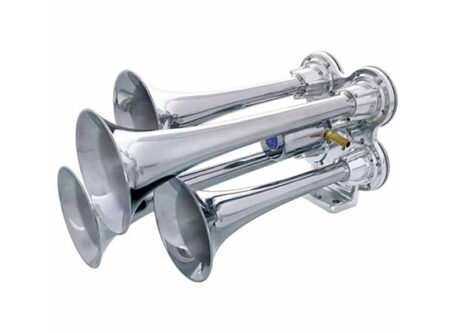Truck company president’s failure to read policy ends insurance lawsuit
A West Virginia federal court has dismissed a lawsuit between a trucking company, KC Transport, and its insurance company in a case highlighting the fact that people should double check before signing off on a policy.
On Jan. 26, a U.S. District Court in West Virginia granted BB&T Insurance Services summary judgment in a lawsuit filed against it by Prince George, Va.-based KC Transport. The trucking company accused BB&T of breach of contract, claiming it should have been covered through workers’ compensation benefits.
One event occurred in August 2015, when one of KC Transport’s driver sustained an injury while on the job in West Virginia. LM Insurance, the company’s insurer, denied the claim that October. Subsequently, the driver and the company KC Transport was working with, Hampden Coal, filed a lawsuit against the trucking company in November 2015 seeking relief as a result of not being insured. LM Insurance refused to defend KC Transport in that complaint. Another one of KC Transport’s insurers, Selective Insurance, also declined to defend the company.
In a separate event in February 2016, another driver sustained injuries while on the job, also in West Virginia. Like the previous incident, LM Insurance denied the driver’s workers’ compensation claim. Also, both LM Insurance and Selective Insurance refused to defend KC Transport in the subsequent civil complaint. In its lawsuit, the trucking company lists two more incidents with similar outcomes.
KC Transport’s hunt for insurance policies
KC Transport’s relationship with the insurance companies dates back to 2014, when it was trying to obtain coal-hauling contracts. Before anyone would award the trucking company a contract, it had to prove it was compliant with applicable laws and provided workers’ compensation coverage for drivers.
Lynn Compton, president of KC Transport, went to BB&T seeking business insurance with workers’ compensation. According to court documents, BB&T claimed Compton was interested in a coal-hauling job in Virginia that was never accepted. Compton later worked with BB&T to fill out a workers’ compensation application.
Based on factual information at the time, the application listed KC Transport with one location in Virginia. It had four drivers who performed local hauling only in Virginia. Compton signed the application indicating the document was read and understood. That document was the sole basis determining which insurance BB&T would get for Compton’s needs.
Based on the application, LM Insurance ended up providing the policy. The policy included workers’ compensation coverage for Virginia and went into effect in May 2014. According to the summary judgment order, “Compton never read this insurance policy and doubted that anyone at KC Transport ever read it either.”
In November 2014, KC Transport signed a contact with Hampden Coal and Blackhawk Mining to haul coal in West Virginia. Blackhawk Mining sent BB&T the contract for documentation that needed to be included on the insurance. That was then forwarded to LM Insurance. No one at BB&T read the contract, and Compton claims it was sent to them for the purpose of ensuring the trucking company’s operations in West Virginia were covered.
Contract never existed
BB&T was unaware KC Transport had any employees in West Virginia until it received the first workers’ compensation claim in 2015. That is when it became clear that the requested coverage was never granted.
In its amended complaint the trucking company alleges BB&T breached its duty by failing to procure insurance coverage for operations in West Virginia. When digging deeper, the court discovered that there was no written contract between the companies regarding coverage in West Virginia. As the court pointed out, the trucking company failed “to make clear how a contract can be breached when a contract was never executed.”
“Plaintiffs instead rely on the fact that BB&T did procure the wrong type of workers’ compensation coverage as evidence that BB&T had a legal obligation to procure the correct type of coverage,” the court stated. “Considering the well-established principles of contract law, plaintiffs’ argument makes no sense. A breach of contract claim requires evidence of a legally enforceable obligation of a defendant to a plaintiff.”
Based on the lack of a contract, the district court awarded BB&T summary judgment. In August 2019, the court awarded summary judgment to the other two defendants, LM Insurance and Selective Insurance. With BB&T the last remaining defendant, the case is effectively closed unless KC Transport appeals. LL









